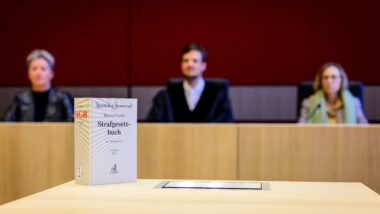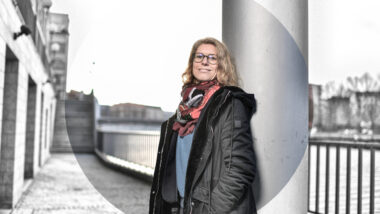Gestern stellte sich Edward Snowden beim The Guardian den Fragen von Internetnutzerinnen und -nutzern. Dabei ging es um WikiLeaks, Snowdens Erwartungen an Obama, das Leugnen von Google und Facebook und die öffentliche Debatte, die laut Snowden abschweife. Alle Fragen und Antworten gibt es hier.
Do you believe that the treatment of Binney, Drake and others influenced your path? Do you feel the "system works" so to speak? #AskSnowden
— Jacob Appelbaum (@ioerror) June 17, 2013
Answer:Binney, Drake, Kiriakou, and Manning are all examples of how overly-harsh responses to public-interest whistle-blowing only escalate the scale, scope, and skill involved in future disclosures. Citizens with a conscience are not going to ignore wrong-doing simply because they’ll be destroyed for it: the conscience forbids it. Instead, these draconian responses simply build better whistleblowers. If the Obama administration responds with an even harsher hand against me, they can be assured that they’ll soon find themselves facing an equally harsh public response.
This disclosure provides Obama an opportunity to appeal for a return to sanity, constitutional policy, and the rule of law rather than men. He still has plenty of time to go down in history as the President who looked into the abyss and stepped back, rather than leaping forward into it. I would advise he personally call for a special committee to review these interception programs, repudiate the dangerous „State Secrets“ privilege, and, upon preparing to leave office, begin a tradition for all Presidents forthwith to demonstrate their respect for the law by appointing a special investigator to review the policies of their years in office for any wrongdoing. There can be no faith in government if our highest offices are excused from scrutiny – they should be setting the example of transparency.




Das ist eine gute Idee von Snowden: Ein Komitee zur Folgeabschätzung der Grundrechtseinschränkungen durch technische Überwachung. In der deutschen Politik gibt es dafür das Wort Technologiefolgenabschätzung. Nicht in die Tagespolitik eingebunden, könnte so ein Komitee rote Linien ziehen, Whistleblowern ein Sprachrohr sein und Geheimdienste und Parlament beraten.
Ich hoffe nicht, dass Snowdens ursprüngliche Hoffnung, die Debatte werde nicht von ihrem Kern auf ihn abweichen, durch solche Interviews untergraben wird.
Wie Leistungsschutz und Drosselkomm birgt auch die NSA-Affäre aus meiner Sicht die Gefahr, aufgrund ihrer Komplexität bald nicht mehr besprochen zu werden, jedenfalls nicht dort, wo es ankommt, außerhalb von Foren und Blogs: im Volk.
Tschüß